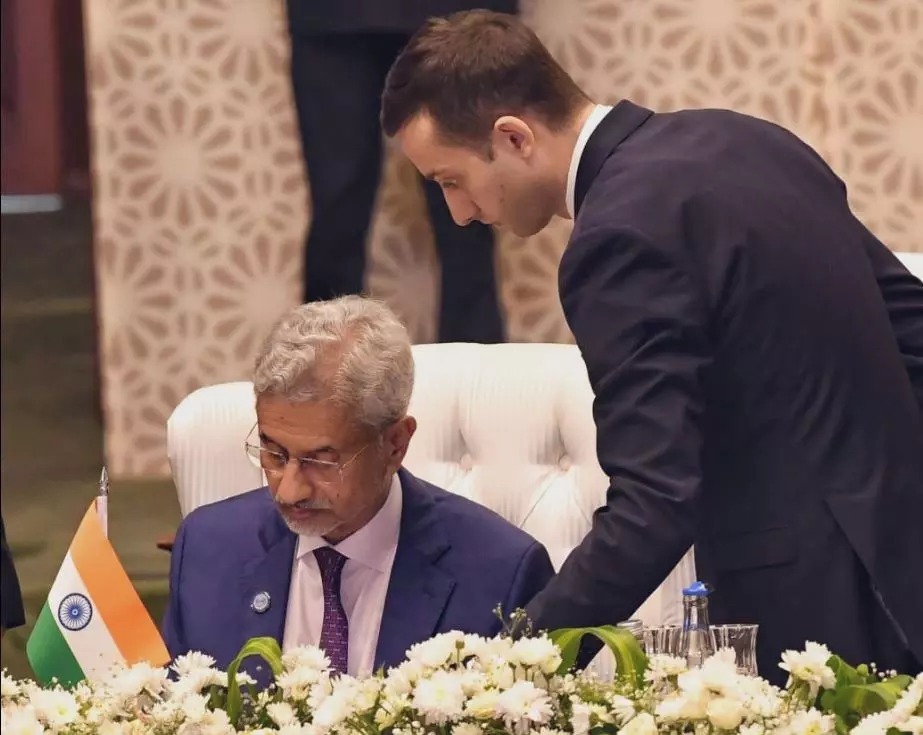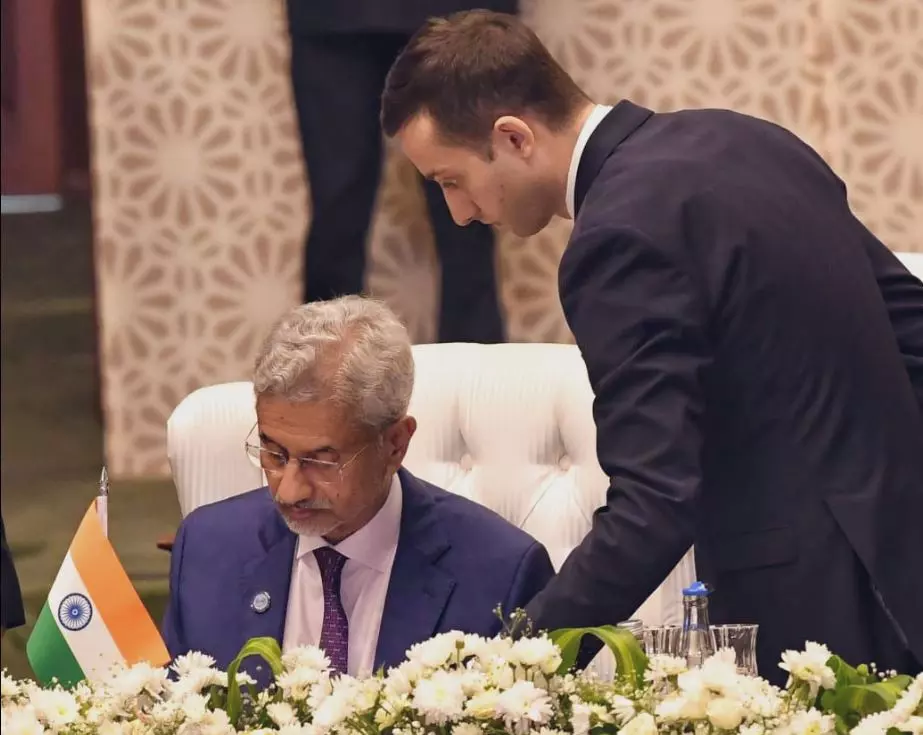
New Delhi:In a strong but veiled message to Pakistan, external affairs minister S. Jaishankar said on Wednesday that “if activities across borders are characterised by terrorism, extremism and separatism, they are hardly likely to encourage trade, energy flows, connectivity and people-to-people exchanges in parallel”. The foreign minister, in his address at the Shanghai Cooperation Organisation (SCO) conclave in Islamabad, sent out an oblique but clear message to host Pakistan to abandon its policy of cross-border terrorism against India.
In his address at the 23rd conclave, Mr Jaishankar pointed to the SCO charter of “strengthening mutual trust, friendship and good neighbourliness” and said that “if trust is lacking or cooperation inadequate, if friendship has fallen short and good neighbourliness is missing somewhere, there are surely reasons to introspect and causes to address”.
Mr Jaishankar told the delegates that the SCO charter was clear about combating three primary challenges — terrorism, separatism and extremism. He said: “Our endeavours will progress only when our commitment to the charter remains firm. It is axiomatic that development and growth requires peace and stability.”
Congratulating Pakistan for the SCO council of heads of government presidency this year, the external affairs minister said India has extended its full support for a successful presidency.
Reading out India’s statement, Mr Jaishankar, in a veiled dig at China on the connectivity issue, said that “cooperation must be based on mutual respect and sovereign equality (and) should recognise territorial integrity and sovereignty”. He added that “it must be built on genuine partnerships, not unilateral agendas…”
The external affairs minister further said: “We meet at a difficult time in world affairs. Two major conflicts are underway, each with its own global repercussions… Globalisation and rebalancing are realities that cannot be denied. Cumulatively, they have created many new opportunities in terms of trade, investment, connectivity, energy flows and other forms of collaboration. There is no question that our region would benefit immensely if we take this forward. Not just that, others too will draw their own inspiration and lessons from such efforts.”
Mr Jaishankar added: “From an Indian perspective, our own global initiatives and national endeavours are also strongly relevant for the SCO. The International Solar Alliance promotes renewable energy. The Coalition for Disaster Resilient Infrastructure prepares us for climate events. Mission LiFE advocates a sustainable lifestyle. Practicing yoga and promoting millets make a difference to wellness and to the environment. The Global Biofuel Alliance recognises the task of energy transition. The International Big Cat Alliance protects our biodiversity. At home, we have demonstrated the value of digital public infrastructure, just as we have shown the impact of women-led development.”
Pressing for UNSC reform and the SCO’s support for this, Mr Jaishankar said, “Global institutions do need to keep pace. That is why the case for ‘reformed multilateralism’ gets stronger by the day. Comprehensive reform of the UN Security Council, both in the permanent and non-permanent categories, is essential…”
In his opening remarks, the Pakistani Prime Minister spoke about “the horrors of terrorism and extremism”. He also pitched for the Chinese-led connectivity project Belt and Road Initiative (BRI) and its flagship project — the China-Pakistan Economic Corridor (CPEC).
India has refused to join the BRI and has opposed the CPEC that passes through Pakistan-occupied Kashmir on the grounds that it violates India’s sovereignty.
After the SCO meeting concluded, Mr Jaishankar termed it a productive meeting” and said India had signed eight outcome documents after making a “positive and constructive contribution to the deliberations.
The foreign minister said that from the Indian perspective, there were eight key takeaways that included upholding fair and balanced connectivity projects in accordance with international law, the goals and principles of the UN Charter and SCO Charter, as well as opposing protectionist actions, unilateral sanctions and trade restrictions that undermine the multilateral trading system and impede global sustainable development.
Earlier in the day, the external affairs minister stood along with other SCO dignitaries in a group photograph. In the morning, a relaxed Mr Jaishankar went for a morning walk along with diplomats at the Indian high commission premises in Islamabad and also planted a sapling in the compound.
The SCO currently comprises nine members — India, Russia, China, Pakistan, Iran, Uzbekistan, Tajikistan, Kazakhstan and the Kyrgyz Republic. Belarus is also joining the grouping as its 10th member.
